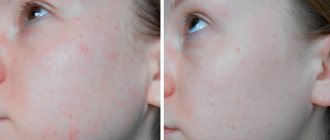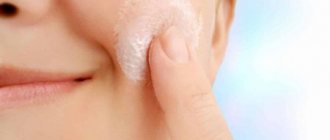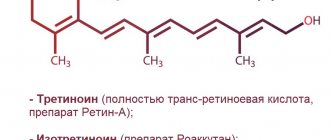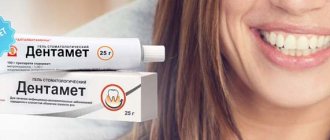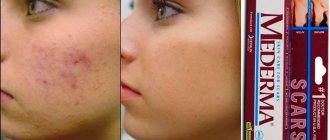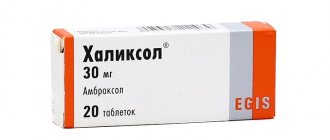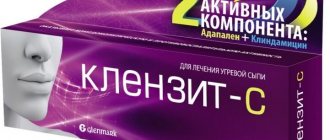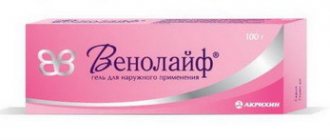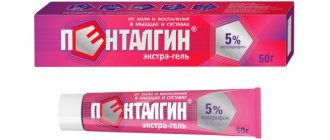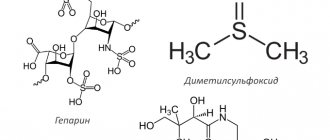Release forms and composition
The product is available in 2 forms: gel and cream. "Venitan" is not made in the form of an ointment. There are 3 types of the drug:
- "Venitan"
- "Venitan N"
- "Venitan Forte".
Despite the seemingly identical names of the drugs, their composition is different. The drugs are sold in the following forms:
"Venitan (gel)"
Average price from 230 to 290 rubles.
Main element: escin. Additional components: sodium methyl parahydroxybenzoate, sodium hydroxide, carbomer, propylene glycol, poloxamer and water.
The water-based gel makes it easy to wash off the product. Does not leave greasy marks. Packaging: aluminum tube of 50 g.
Average price from 290 to 320 rubles.
"Venitan N"
Light yellow cream with a slight brown tint. Water-oil base, thanks to which the drug is applied to the skin without problems.
Horse chestnut seed extract is the main active component. Additionally present: disodium edetate, petrolatum, glyceryl monostearate, propylene glycol, mineral oil, cetostearyl alcohol, glyceryl caprylocaprate, simethicone, colloidal silicon dioxide, polysorbate, hyaetellose, water.
"Venitan Forte"
Average price from 280 to 340 rubles.
Its active ingredients are amorphous β-escin and heparin. The composition also includes: powdered allantoin, sodium hydroxide, dexpanthenol, carbopol 934 P, sodium methyl parahydroxybenzoate, propylene glycol, simethicone emulsion and water. Color: transparent
Briefly about varicose veins and its treatment
Both sexes suffer equally from varicose veins of the lower extremities. The disease is associated with the expansion and lengthening of the veins in the legs, accompanied by thinning of the walls of blood vessels. Pathology affecting the walls of the venous beds in combination with insufficiency of the vein valves or a genetic defect leads to the formation of nodes on the walls of blood vessels. The most common cause of varicose veins is increased venous pressure and heavy physical activity.
The disease, which goes through several stages of development, threatens with complications leading to the development of trophic ulcers and severe venous bleeding. As part of the complex therapy of varicose veins, in addition to tablets and procedural techniques, there are local treatment agents (creams, ointments, gels) that contribute to:
- Improving the functioning of the valve mechanism;
- Reducing swelling and soreness of veins;
- Increased tone of the walls of blood vessels.
Natural creams and gels are especially popular among patients with varicose veins. Gel Venitan Forte, protecting against complications, helps normalize blood flow in the area of the lower extremities, and is notable for its low cost. The price of a 50-gram tube of Venitana Forte ranges from 230-330 rubles.
According to reviews from patients and doctors, with a good price-quality ratio, a gel with a small percentage of heparin acts more gently than more effective products with a high content of heparin.
Mode of application
All three drugs are used externally.
The use of "Venitan" in the form of gel and cream is as follows:
- It is necessary to squeeze a small amount of the drug onto your hand, apply it to unhealthy areas of the skin and grab a little of the healthy edges
- Then rub in
- For varicose veins, use a medical bandage with woven rubber threads or tightening tights
- Should be used two to three times a day.
Rules for using "Venitana Forte":
- 1 to 3 times
- Apply several small strips of gel to and around the sore spot and rub in gently.
- For varicose veins, use a medical bandage or tight tights
- In case of inflammation, the gel is not rubbed in
- For trophic ulcers of the knees, lubricate only the edges with gel, avoiding the drug getting on the surface of the wound.
During pregnancy and lactation
Since there are no restrictions, apply according to the above schemes. But still, the need to prescribe medication during these periods is determined by the doctor on an individual basis.
For other ways to relieve swelling, see the article: Swelling of the legs during pregnancy.
Indications for use of drugs
- Symptoms of venous insufficiency characteristic of the initial stage of varicose veins. This may include pain in the legs, a feeling of fatigue in the limbs, and their heaviness. In the evening, there may be a feeling of aching in the legs against the background of swelling of the feet, which often spreads from the feet to the lower legs.
- Impaired blood circulation through small capillaries. The condition can be caused by atherosclerosis, thrombophlebitis, and arthritis. Pathologies are usually accompanied by impaired venous outflow from the lower extremities. The use of Venitan gel, as the instructions indicate, prevents stagnation of blood in the branches of the venous bed and disruption of the trophism of the skin due to the relief of inflammation.
- Signs of venous insufficiency. It causes varicose veins that affect the lower extremities. The pathological condition is characterized by stretching and weakness of the venous valves, which requires timely treatment. In addition to pain, venous insufficiency is signaled by cramps in the calf muscles and itching of the skin, which Venitan gel successfully combats.
For preventive purposes, the gel is prescribed in the following cases:
- With a hereditary predisposition to varicose veins due to the low strength of the vessel walls. The use of a combined remedy is important against blood stagnation, when the venous vessels of the lower extremities are subject to increased stress.
- If you are overweight or have a sedentary lifestyle. People who move little, do sedentary work, and are forced to stand for long periods of time are prescribed Venitan in the form of a gel or cream to protect their veins from stretching.
- When playing sports with a lot of stress on the muscles. Due to its anti-edematous and absorbable effect, the ointment is recommended for use for bruises and bruises after injuries, swelling due to sprained muscles or ligaments, and for subcutaneous hemorrhages.
Contraindications
"Venitan" is a gel that should not be used in the following situations:
- In case of individual intolerance to the components of the drug
- For leg injuries (burns, open wounds, eczema).
Precautionary measures
- Use with caution if there is a predisposition to thrombosis
- Do not allow the drug to come into contact with mucous membranes
- If there is a sudden change in the skin on the treated area (for example, swelling, discoloration, etc.), you should consult a doctor. Negative consequences may be associated with the appearance of an allergic reaction or increased venous insufficiency.
pharmachologic effect
Venotonic drug of plant origin for external use.
Aescin is contained in the seeds of horse chestnut (Aesculus hippocastanum L., semen). It is a mixture of triterpene saponins. Escin has an anti-inflammatory effect mainly in the initial phase of the inflammatory reaction, “thickening” the walls of the capillaries and thus reducing their permeability, which is increased during inflammation. Escin also has a positive effect on fragility of capillary walls and increases the tone of the venous walls when it weakens. All this leads to a decrease in stagnation in the venous bed and accumulation of fluid in the tissues, preventing the appearance of edema.
Analogs
There are plenty of substitutes for Venitan gel. In the treatment of vein diseases, substitute drugs such as “Doctor Theis Venen Gel”, “Heparin” are used.
“Doctor Theis Venen Gel”
Dr. Theis Naturwaren GmbH, Germany. Price from 250 to 450 rubles.
The main active ingredient of the drug is extract of horse chestnut seeds and calendula flowers. Auxiliary components are: ethyl alcohol, gluocamate, sepigel, fragrance, water.
pros
- Natural composition
- Economical to use - lasts a long time
- After application, you feel freshness and a cooling sensation on your legs.
- Efficiency - quickly copes with swelling and stars on the legs
Minuses
- Contains ethyl alcohol, which may cause dry skin
- Specific smell.
Gel "Heparin"
JSC "Pharmaceutical", Ukraine/ RUE "Belmedpreparaty", Belarus. Price from 230 to 280 rubles.
The main active ingredient of the gel: sodium heparin. Additional components: ethyl alcohol, carbomer, methylparaben, dimethyl sulfoxide, propylene glycol, propylparaben, diethanolamine, water, lavender oil.
pros
- Pleasant texture of the drug, absence of any odor
- Speed of impact
- Affordable price
- Long shelf life (3 years)
Minuses
- May cause itching, stinging in the affected area
- Unnatural composition.
Venitan N
Venitan N is a venotonic drug for topical use based on a dry extract of horse chestnut seeds, rich in the triterpene saponin escin. It is used mainly for various forms of venous insufficiency, including varicose veins. As is known, radical methods of treating chronic venous insufficiency (i.e., surgery) are not the only possible ones: an important role in modern phlebology is also given to conservative treatment, including drug therapy. Pharmacotherapy of venous insufficiency is intended to prevent its occurrence in people at risk, eliminate pathological symptoms at the initial stage of the disease, transfer it to a compensated form, or prepare the patient for surgery with subsequent postoperative rehabilitation. There are a number of so-called “threatening” symptoms for which medications for symptomatic treatment can no longer help much, and therefore you should immediately consult a doctor to decide on surgical intervention. These include: a painful cord palpated along the superficial (subcutaneous) veins of the lower extremities against a background of elevated body temperature to febrile values, pain and hyperemia of the skin over an existing varicose node, sharply developed swelling and blanching of the skin of the entire limb, bleeding from a varicose vein node. In the absence of the above symptoms, symptomatic therapy is possible. The need to use venotonic drugs for external use and, in particular, venitan N is due to a number of factors: the high prevalence of venous insufficiency in the human population, frequent recurrence of the disease, the availability of symptomatic therapy, including the price factor and over-the-counter dispensing. To get the maximum effect from the use of local venotonics, they should be applied to the skin in the affected area immediately after the first symptoms of venous insufficiency appear.
Timely initiation of pharmacotherapy shortens the course of the disease, alleviates the patient’s condition and improves his quality of life. One of these drugs is Venitan N, which contains components of the medicinal plant Aesculus hippocastanum or horse chestnut. The first mention of the use of horse chestnut for medicinal purposes appeared at the end of the 16th century. Initially, this plant was recommended to be given to horses suffering from shortness of breath (which, in fact, is how it “earned” its somewhat animalistic name). Horse chestnut owes its healing properties to the escin it contains. The latter has an anti-inflammatory effect, mainly at the initial stage of development of the inflammatory reaction, making the walls of the blood vessels of the microvasculature denser and less permeable. Escin prevents capillary fragility and increases venous tone in case of weakening. All this together prevents the phenomena of venous stagnation and accumulation of fluid in the tissues, preventing the development of swelling. The anti-inflammatory effects of escin have been demonstrated in numerous preclinical and clinical studies in various models of inflammation. It is based on the already mentioned ability of this substance to strengthen the walls of capillaries: escin not only reduces the number of pores, but also their diameter. It has been shown that escin is 600 times more effective in anti-exudative action than the classic flavonoid rutin. As scientists suggest, another mechanism by which escin realizes its anti-inflammatory effect is its ability to stimulate the synthesis of glucocorticosteroids by the adrenal cortex (however, this is unlikely to apply to external dosage forms).
Venitan N is available in the form of a cream. The method of using the drug is as follows: a thin layer of cream is applied to the skin directly in and around the affected area. It should be rubbed in with the utmost care. Frequency of use: 2-3 times a day. For varicose veins, it is recommended to tighten the lower limbs with an elastic bandage or wear special underwear.
Side effects
The main active ingredient of the drug (escin) is a natural product, which eliminates the occurrence of severe side effects. If undesirable reactions of any kind occur, you should completely abandon the medication, then the negative manifestations will go away on their own. Some situations may require medical attention:
- Allergic rash on the skin like urticaria;
- Burning and redness of the mucous membranes when the medicine gets on them;
- Blueness or redness in the treated area, painful sensations.
During pregnancy and lactation, the instructions for use of Venitan do not contain any restrictions.
The start of therapy should be agreed with a doctor, despite the absence of systemic effects from the active substance. The preparation for external use contains the auxiliary component methylhydroxybenzoate (E 218), which can cause an inadequate skin reaction. Children are not treated with the drug.
In childhood, during pregnancy and breastfeeding
Venitan gel is not prescribed for children. There are no data on the interaction of the drug with the child’s body and the effectiveness of treatment.
During pregnancy, the main load falls on the legs, which causes venous diseases to worsen. There is a need to prevent or treat an existing problem. The drug is absorbed into the blood in small doses and does not pose a threat to the development of the fetus.
During gestation and breastfeeding, the drug is used as prescribed by a doctor. The duration of therapy should not exceed 7 days.
Pharmacological properties
Venitan is a combination drug that reduces vascular permeability and has a tonic and anti-inflammatory effect.
Pharmacodynamics and pharmacokinetics
Horse chestnut extract increases venous blood flow, which is a beneficial effect in case of venous stagnation. Strengthens blood vessels and capillaries, helps reduce their permeability.
Heparin counteracts blood clotting, has an anti-edematous effect, and helps reduce the formation of blood clots.
The active ingredients in small doses are absorbed into the blood and excreted from the body by the kidneys after 12 hours.
What kind of drug
Venitan gel is a plant-based preparation for external use. A venotonic agent that has an anti-inflammatory and decongestant effect.
Liniment has a light texture, transparent color, no distinct odor, packaged in 50g tubes.
Manufacturer: companies including Sandoz-Lek, Slovenia, Salutas Pharma, Germany. The drug is approved for use without a prescription.
